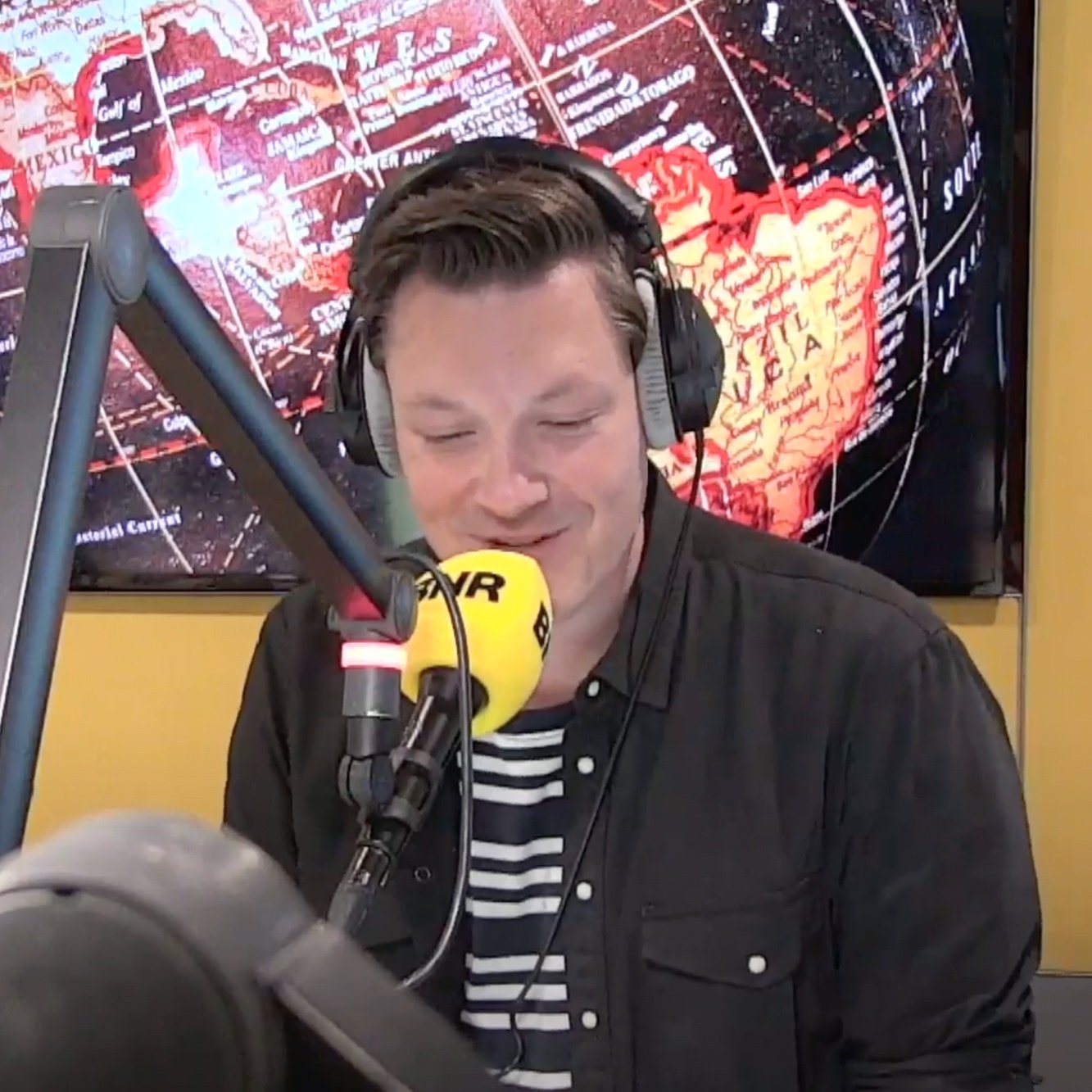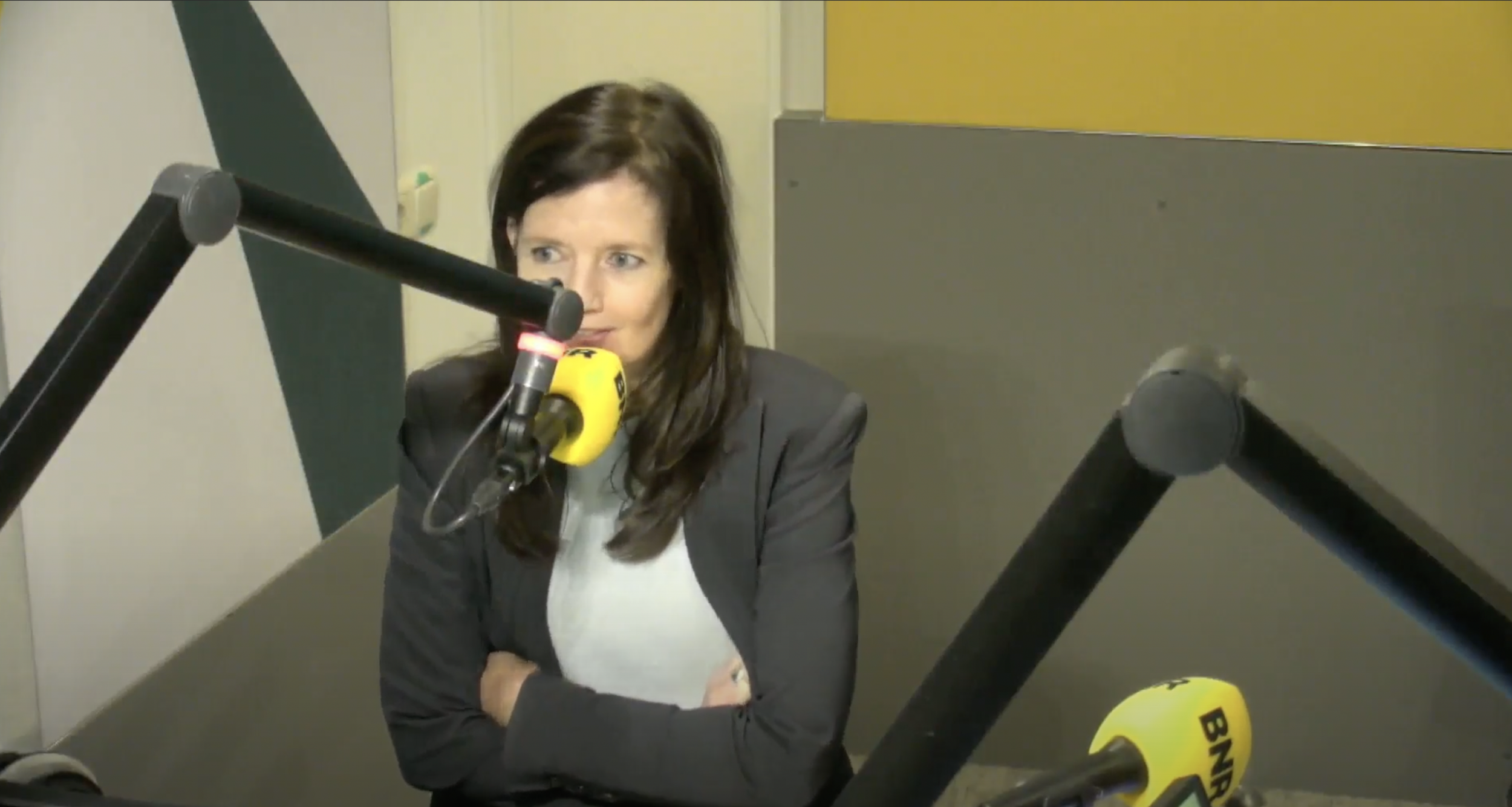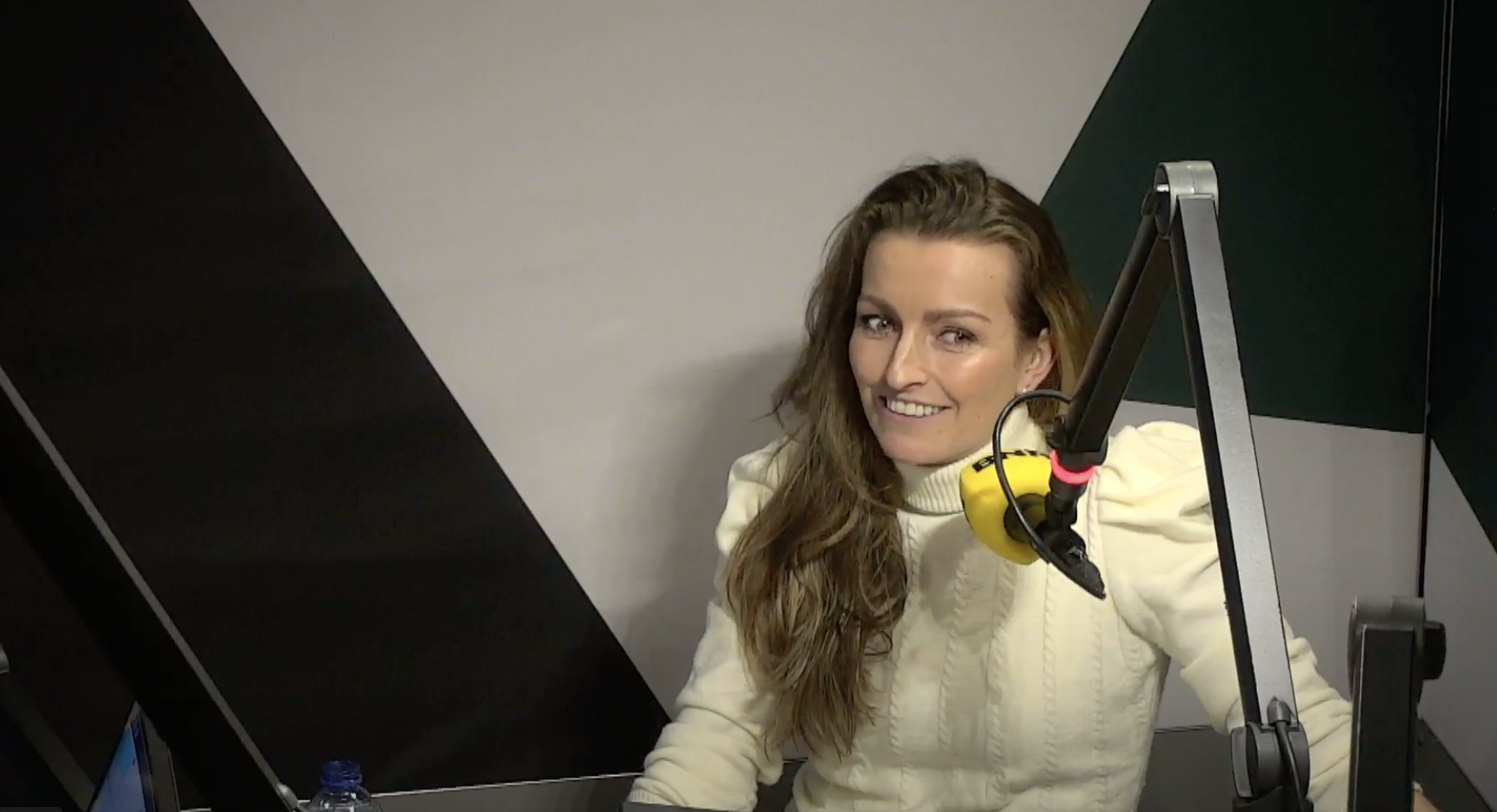Blog #28: Radio interview VINADA’s founder Jess on -BNR NIEUWSRADIO- about doing business in Korea
how important is the personal touch while doing business in South Korea?
Today our founder Jessica van Spaendonck - van der Kist VINADA - ZERO ALC. was in conversation with Jelle Maasbach (Host) and Monique Ansink (co-host) from Jumbo Cargo Products during the program Wereldveroveraars on BNR Nieuwsradio (Business News Radio). About -BNR Wereldveroveraars- (world conquerors): We follow entrepreneurs on their adventures abroad and learn from the things they encounter. It has already taken us all over the world. From Japan to South Africa and from Canada to Ghana.
In this episode:
- Jessica van Spaendonck - van der Kist from VINADA
Jessica knew from a young age that she wanted to own her own business. This dream became a reality in 2017 when she founded her company, VINADA Wines. An ambitious alcohol-free wine brand featuring sparkling wines from Spain and France, the products are now sold in over 30 countries. Her journey from envisioning a childhood dream to establishing a successful international brand serves as an inspiring narrative for aspiring entrepreneurs, highlighting the power of determination and passion in turning entrepreneurial dreams into a global reality. Jessica aims to contribute to a growing narrative of female empowerment in business, fostering a sense of possibility and ambition among young women in both local and global contexts.
- And Monique Ansink, world conqueror from the very beginning
Let’s take the plane to……..: South Korea!
Read it below or listen the whole interview (in Dutch) on Spotify: https://spotify.link/ClzE3nGx1Db
Here is a short excerpt for you to view.
Jelle: With VINADA you produce non-alcoholic sparkling wines, how did you start?
Jessica: It began out of personal interest for me, as, for medical reasons, it was not always recommended to consume alcohol. Consequently, I began exploring alternatives, but none seemed to meet my criteria. This was around early 2015. The idea lingered in my thoughts, and I couldn't fathom that I was the only one seeking a suitable alternative. Everyone has their unique reasons for abstaining or reducing alcohol intake, whether due to medication, a commitment to a healthy lifestyle, being a top athlete, adhering to a specific diet, or simply avoiding the aftermath of a hangover.
In 2017, finding no satisfactory alternative for myself, I made the decision to create one. Although it may not seem like a long time ago, the landscape of non-alcoholic beverages has undergone significant changes since then.
Initially, I delved into the feasibility—was it possible at all? The answer was theoretically yes. Several phases later, I embarked on a journey to Spain and France, seeking partners willing to join this adventure.
Fast forward a year: the first wine became a reality, and it needed a name. Thus, VINADA was born, combining "VIN" from the French word for wine (after all, it’s wine) and "NADA" for none, signifying the absence of alcohol in our case.
In May 2018, the inaugural VINADA product entered the market—our effervescent Tempranillo Rosé, a Spanish wine crafted from the Tempranillo grape. Currently, our range includes three wines in various sizes, including gift packs.
We've observed a shift in the market—a departure from the era of hangovers, a lack of time for such inconveniences, and a focus on a bustling life. There's a desire to do everything, with a heightened emphasis on health and increased awareness of the adverse effects of alcohol. People seek something delightful to accompany their drinks or cheese plates. The preference for non-alcoholic wine is no longer exclusive to pregnant women; it embodies inclusivity.
Jelle: Cutting down on alcohol is becoming increasingly popular, but was it difficult to sell this idea at the beginning?
Jessica: Initially, the majority of individuals considered me crazy when I divulged my plans to them back then in 2017. Alcohol-free wine is a product that people must experience. Simultaneously, they're curious about the production process, with some assuming it's akin to grape juice or lemonade.
Understanding the process is crucial: Our wines are crafted exactly like traditional wines but undergo a dealcoholization process instead of being bottled conventionally. Through a combination of heating and vacuum procedures, we extract alcohol from the wine. Executing this at an exceptionally low temperature, 28 degrees in our case, preserves the wine's aromas and, consequently, its taste, ensuring a complete experience.
Everyone is pleasantly surprised upon tasting our wines. "Huh? Is there really no alcohol in this?" they often exclaim—a gratifying response for us.
In the early stages, we intentionally began with piccolo bottles, 200 ml or 1.5 glasses. It adds more fun to your own party on the table and mitigates the risk of waste for catering entrepreneurs who don't need to open a large bottle of a new product. Initially, it involved numerous phone calls and appointments with hotels, restaurants, and liquor stores. Skepticism often prevailed over the phone, but I'd be invited anyway. Laden with boxes of VINADA, I set out for these appointments. Remarkably, 9 out of 10 locations I visited immediately purchased a number of boxes.
It was incredibly rewarding. Now, the focus is on ensuring as many people as possible get to taste our wines. Attracting customers is one thing, but retaining and expanding, especially with an unfamiliar product, is another challenge. The goal is for our product to fly off the shelves.
Presently, the majority of our marketing budget is still dedicated to tastings and sampling.
Jelle: What is the attitude towards non-alcoholic bubbles now in 2023?
Significant changes have occurred in recent years, with much greater acceptance, and the beer market has played a significant role in this positive shift. However, we're not there yet. While there are excellent alternatives available, our collective effort aims to transform the mindset from asking, "Why don't you drink?"—which, with a bit of unfortunate timing for a woman around 30, often leads to the question, "Are you pregnant?"—to a more inclusive, "What are you drinking tonight?" It's a shift without harboring negativity towards alcohol. VINADA serves as a distinct alternative for those times when you choose not to or can't consume alcohol.
In today's world, it's imperative to provide a respectable alternative for those who abstain from alcohol. People desire an alcohol-free option that complements a meal, even in a Michelin-starred restaurant. That's the demand we aim to meet.
We're delighted to contribute to this shift, and the positive response from people towards our product fills us with gratitude.
Jelle: VINADA is active in 31 countries including South Korea, how did you end up there?
Jessica: HARD WORK and a bit of luck 😊
We operate on a distribution model. This means we collaborate with one company per country or per state, depending on the country's structure. We enter into agreements where they exclusively handle the sales and distribution of VINADA in their designated area. They set up the entire distribution, sales, and marketing operations, and we provide support where needed.
Some distributors were actively sought out by us, while others approached us. In the case of Korea, we were fortunate enough to be approached by them.
Our initial foray involved partnering with a distributor focused on e-commerce. Given that our product is well-suited for online distribution, its popularity steadily increased. As sales rose, another distributor came into the picture, specializing in retail and horeca. This distributor approached us expressing interest in becoming the master distributor for our product in their home country of Korea.
The strategy was to distribute to top hotels, high-end restaurants, and all premium retailers, including the Lotte WorldTower in Seoul, a colossal shopping mall and the tallest tower in all of Korea. A VINADA store is set to open there at the end of this year. Currently, VINADA is available at all major chains in Korea. True to their word, this distributor has delivered on their promises.
Jelle: Were the non-alcoholic bubbles immediately welcomed there with open arms?
Jessica: Here, too, the principle applies: people must taste. We have devised a plan for this, in which we aim to let as many people as possible taste our product through shop in shops in the major malls of Korea.
This is complemented by very cool marketing actions. For example, a few months ago, a mega VINADA event was organized by the distributor. The event featured the 30 biggest female influencers in Korea, who were offered a VINADA pilates class on a rooftop terrace of a very tall tower, right in the heart of Seoul. Unfortunately, I wasn't there, but the footage was fantastic, as was the huge positive impact it had.
Later, VINADA appeared on national television, and at that point, it was more like 'IT MUST BE GOOD'. The distributor played a very smart role in capitalizing on this. We are very grateful to the distributor for this.
Jelle: What other obstacles did you encounter?
Jessica: Alcohol-free wine is a new product, placing it in a grey area regarding legal regulations—an advantage but also a challenge, as today it may fall under one category, and tomorrow under another. In Korea, the product was categorized as 'Fruit Juice' last year, but since January of this year, it falls under 'Sparkling Beverage,' subject to entirely different rules due to import, labeling, etc.
For 'Fruit Juice,' there were no regulations regarding the So2 level (sulfite). However, for 'Sparkling Beverage,' there are specific regulations. Once it is sparkling, no sulfites are allowed unless it contains more than 7% alcohol. For us, it's a tricky puzzle because CO2 cannot be removed, and removing the So2 would spoil the product before it reaches Korea. It has been promised that the law will be revised, but this has resulted in a dip in sales.
Jelle: How do you deal with that?
Jessica: Collaborating to explore possibilities, continuing the search, utilizing support systems; "No" is not an answer. Instead of getting discouraged, it's about giving it your all. I can't deny that it can be incredibly frustrating, like when five containers are on the way, and customs suddenly say, "No, we don't think it's a good idea for today." Mega frustrating, of course.
Exploring alternatives for sulfites, exploring alternatives for sparkling—every option is considered in such moments.
When it comes to labels, there's a definite risk involved. You never know when governments might change their laws and regulations. If you see it coming, you try to coordinate it well with your inventory, of course. It's a market with tremendous potential. We focus on the possibilities and try to address the challenges related to import as much as possible. You don't always have control over everything, so we concentrate on things we can control.
Jelle: In South Korea they of course speak a completely different language, how did you deal with that at the beginning?
Jessica: During phone conversations, there is always an interpreter present. My colleagues primarily manage these conversations. To avoid any misunderstandings caused by this third party, it is important for both parties to regularly check if we are still on the same page.
But this is actually going very well.
Jelle: How important is the personal touch in Korea?
Jessica: You not only have a business relationship with the distributor, but Koreans are also very personal. After signing the contract, I received 3 mega boxes of luxury tea. Incredibly kind, this was greatly appreciated. We certainly did not expect this.
Personal also strengthens the business relationship, very important. What you give you also get back.
What we have also noticed is that Koreans seek connection on a personal level, and they place a significant emphasis on this. For instance, earlier this year, one of our daughters had an accident, and a month later, we received two enormous boxes full of toys. They even considered our other daughter. Both boxes contain the same toys so that they can play together, avoiding any arguments. It was incredibly thoughtful, something they didn't have to do, but it truly reflects the kind of relationship they maintain.
Here, when a customer welcomes a baby, we send a package as a gesture, which we consider normal. However, receiving such thoughtful gestures in return is not something you would necessarily expect. Koreans are incredibly considerate.
Jelle: What are the future plans for Vinada, will you stay in South Korea for a long time?
Jessica: Certainly, the distributor is actively working on expansion, ensuring that VINADA is available at the largest retail chains. It's a promising market with a lot of potential.
I would also like to take this opportunity to express our gratitude to our distributor in Korea for the excellent collaboration thus far. We appreciate the positive working relationship, and we look forward to continued success together.
Jelle: And after that? Are there more countries on the list to conquer?
Jessica: Absolutely!
Our greater goal is specifically to shift the focus from "WHY AREN'T YOU DRINKING" to "WHAT ARE YOU DRINKING TONIGHT." It's deeply ingrained in the culture to consume alcohol. Our aim is to promote social awareness regarding alcohol, all over the world—emphasizing that this is distinct from harboring a negative sentiment towards alcohol. With VINADA, we provide an alternative for those moments when you choose not to, can't, or shouldn't consume alcohol.




